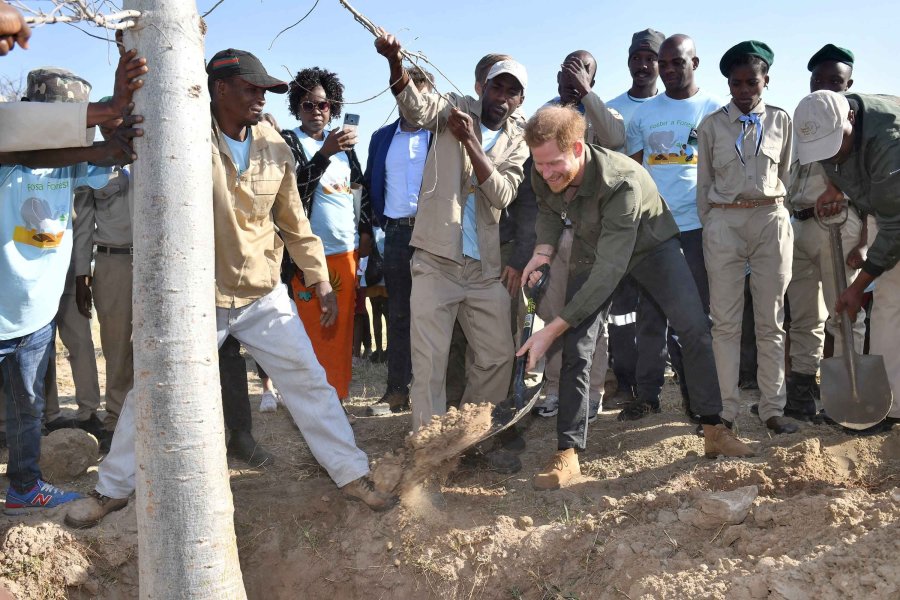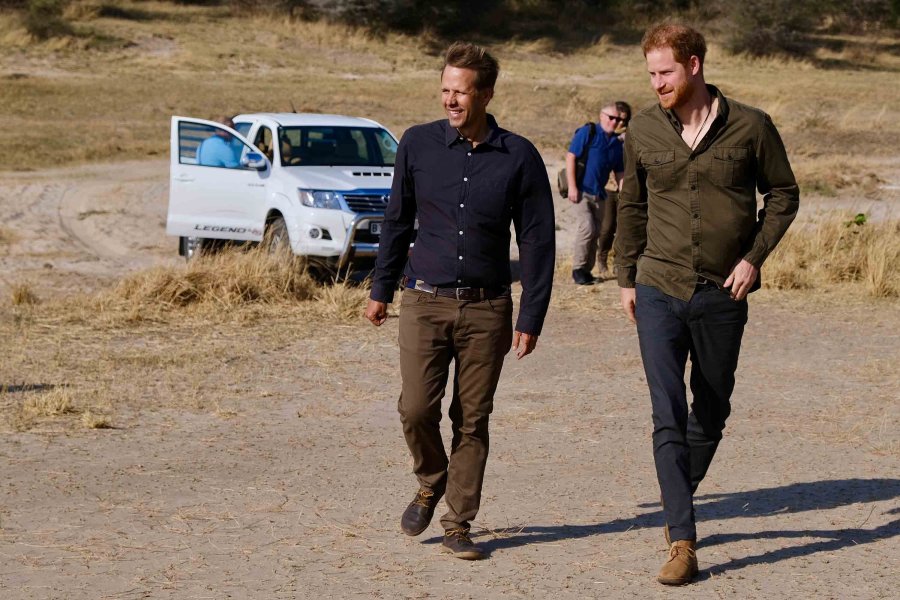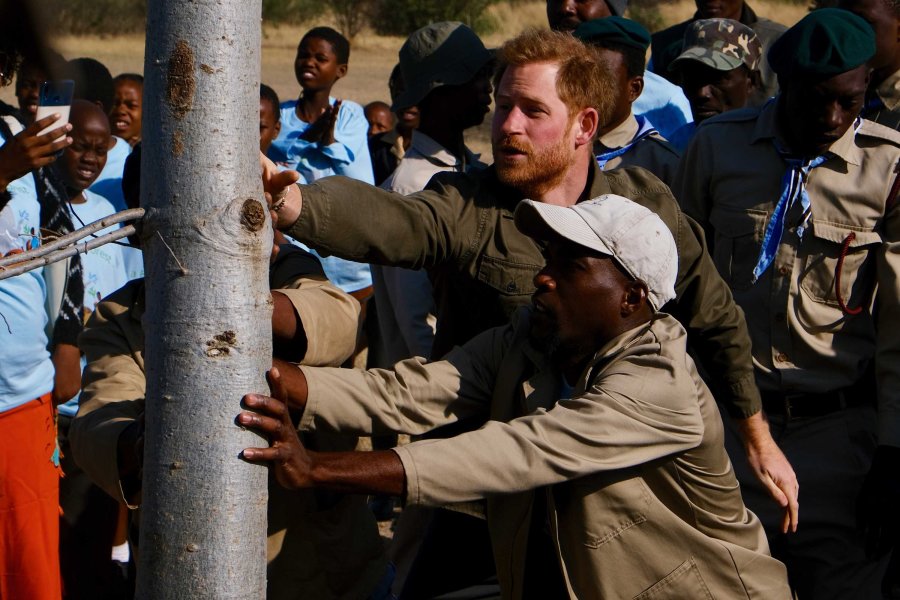Prince Harry has given a full-throated defense of climate action by young people around the world, including the Swedish teenage activist Greta Thunberg.
In an interview with CNN on the banks of Botswana’s Chobe River, Harry said: “The world’s children are striking. It is an emergency, a race against time and one in which we are losing.
“I don’t think that there is anyone in this world that can deny science,” he continued. “Undeniable science and facts. No one can deny science otherwise we will live in a very troubling world.”
Harry’s visit to Kasane, right on the edge of the Chobe National Park, is the latest stop on a whirlwind tour through southern Africa.
Leaving Meghan, the Duchess of Sussex, and their four-month-old baby Archie in South Africa, Harry came to Botswana to highlight his ongoing commitment to conservation, as well as the work of the Chobe community and Mike Chase, the founder of Elephants without Borders.
As part of that project, the prince and a group of Botswana scouts worked together to embed a young, but very large, endangered Baobab tree into the ground as a sharp wind blew across the dusty dunes.
“My family plants trees all around the world. My grandmother has probably planted a thousand. And I don’t want to take anything away from her, but I don’t think anyone has planted a tree this big other than maybe my father years and years ago,” joked Harry.
Botswana itself is home to the world’s largest population of elephants, with around 130,000 animals. At more than 17,000-strong, the population in Chobe National Park is healthy despite recent evidence of a poaching uptick.
But across the continent, the outlook for savannah elephants is much worse. The great elephant census, an aerial survey led by Chase and a team of scientists, showed that elephant numbers were down by 30% in just seven years. In certain regions, they could go extinct.
“I think we are all in the middle of it. I don’t think anyone isn’t involved in conservation or shouldn’t be involved in conservation somehow,” Harry said.
For years, the prince has quietly built his reputation as a frontline conservationist with scientists like Chase. Harry has returned time and again to southern Africa and, particularly to Botswana, often on private visits.
“Some of my closest friends are here. And I came here in 1997, 1998 straight after my mum died so it was a nice place to get away from it all. But now I feel deeply connected to this place and to Africa,” he told CNN.
And Harry continued that tradition when he brought Meghan to Botswana soon after they became a couple.
On August 12, World Elephant day this year, the royal couple revealed photographs of them that were taken during their private visit to Kasane in 2017 — the same year they were engaged.
The images show the couple attaching a satellite collar to a large elephant that Chase’s Elephants Without Borders group uses to track the animals’ movements.
The reforestation of this slice of the Chobe River will also help to create a wildlife corridor for the elephants to move safely to the water to drink.
Harry said that the enthusiasm of children here in Botswana and around the world have given him purpose.
“I think all of us can take a lot from what young people are doing. This is what gets me out of bed every day. These kids, their optimism and we have just got to help them through that and give them a platform,” he said.
























